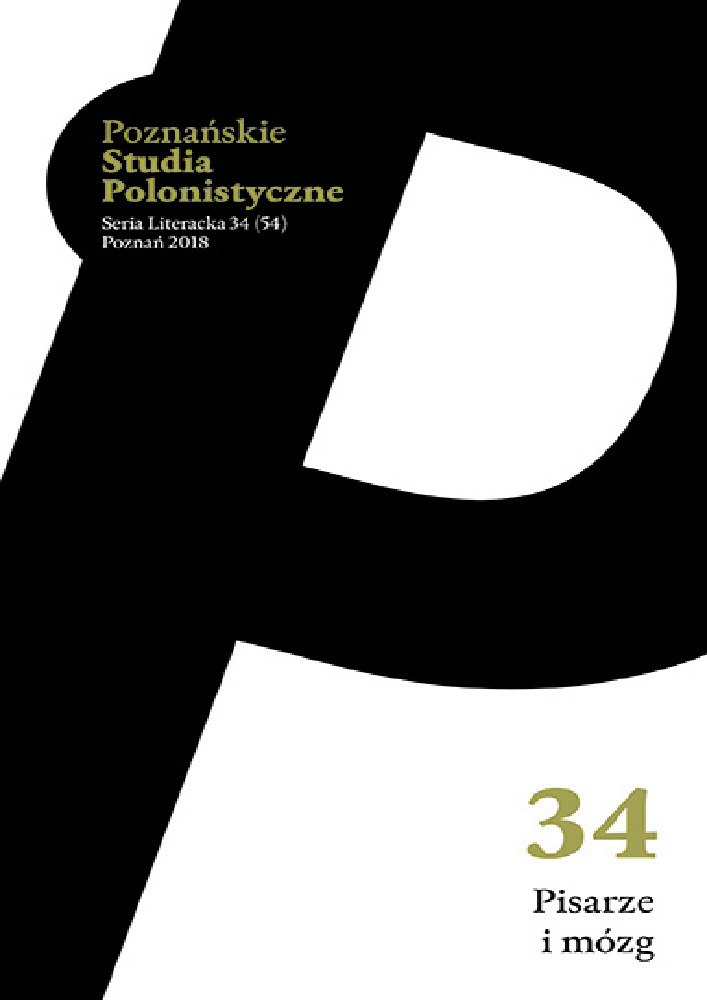Abstract
In my text I refer to contemporary art practices, including my own artistic investigations and intuitions; questioning creative powers of the human brain-mind system in the world increasingly dependent on and transformed by Big Data. Currently, with the global revolution of knowledge, driven by scientific and technological progress, creativity and innovation acquire special economic and social values. Research on biochemical processes accompanying creative behaviour stimulates the synergy between artistic, scientific and engineering communities. The acquired knowledge is used in medicine, biotechnology and various types of therapies as well as in deep learning methods. Increasing the efficiency of artificial intelligence systems that quickly take control over all areas of our lives. Will the nascent Internet--of-all-Things transform itself into the Internet-of-all Minds? As an artist, I pose myself a question, which artistic practices may emerge from the marriage of biological and digital algorithms? The future has many scenarios and shades…
References
Bohm David (1980), Wholeness and the Implicate Order, Routledge, London [Wielka Brytania].
Capture the Future(s): Evolution II, Elusive Identity (2017), [online], Berlin [dostęp: 16 października 2018], http://artscience-node.com/transmediale-2017/.
Hoffmann-Dietrich Joanna (2005/2006), Tones &Whispers [online], [dostęp: 16 października 2018], http://www.johoffmann.com/tones&whispers2.htm.
Hoffmann-Dietrich Joanna (2009-2015), Hidden Topologies of Being [online], [dostęp: 16 października 2018], http://www.johoffmann.com/bio_gb.htm.
Hoffmann-Dietrich Joanna (2018), EpiZone_0 [online], [dostęp: 16 października 2018], http://www.johoffmann.com/epizone0.htm.
Levin Tamar (2011), Holographic trans-disciplinary framework of consciousness: An integrative perspective, „Journal of Consciousness Exploration & Research”, nr 2, s.1385-1416.
Pascal Blaise (1972), Myśli, przeł. Tadeusz Boy-Żeleński, Instytut Wydawniczy PAX, Warszaw.
Symotiuk Stefan (1998), Filozoficzne aspekty problemu przestrzeni, w: Przestrzeń w nauce współczesnej, red. Stefan Symiotuk, Grzegorz Nowak, Wydawnictwo UMCS, Lublin.
The Blue Brain Project (2018), [online], Geneva [dostęp: 16 października 2018], https://bluebrain.epfl.ch/.
The Millennium Simulation Project (2018), [online], Durham [dostęp: 16 października 2018], https://wwwmpa.mpa-garching.mpg.de/galform/virgo/millennium/.
License
Authors
Authors of texts accepted for publication in „Poznańskie Studia Polonistyczne. Seria Literacka” are required to complete, sign and return to the editor's office the Agreement for granting a royalty-free license to works with a commitment to grant a CC sub-license.
Under the agreement, the authors of texts published in „Poznańskie Studia Polonistyczne. Seria Literacka” grant the Adam Mickiewicz University in Poznań a non-exclusive, royalty-free license and authorize the use of Attribution-NoDerivatives 4.0 International (CC BY-ND 4.0)Creative Commons sub-license.
The authors retain the right to continue the free disposal of the work.
Users
Interested Internet users are entitled to use works published in „Poznańskie Studia Polonistyczne. Seria Literacka” since 2016, for non-commercial purposes only, under the following conditions:
- attribution - obligation to provide, together with the distributed work, information about the authorship, title, source (link to the original work, DOI) and the license itself.
- no derivatives - the work must be preserved in its original form, without the author's consent it is not possible to distribute the modified work, such as translations, publications, etc.
Copyrights are reserved for all texts published before 2016.
Miscellaneous
Adam Mickiewicz University in Poznań retains the right to magazines as a whole (layout, graphic form, title, cover design, logo etc.).
